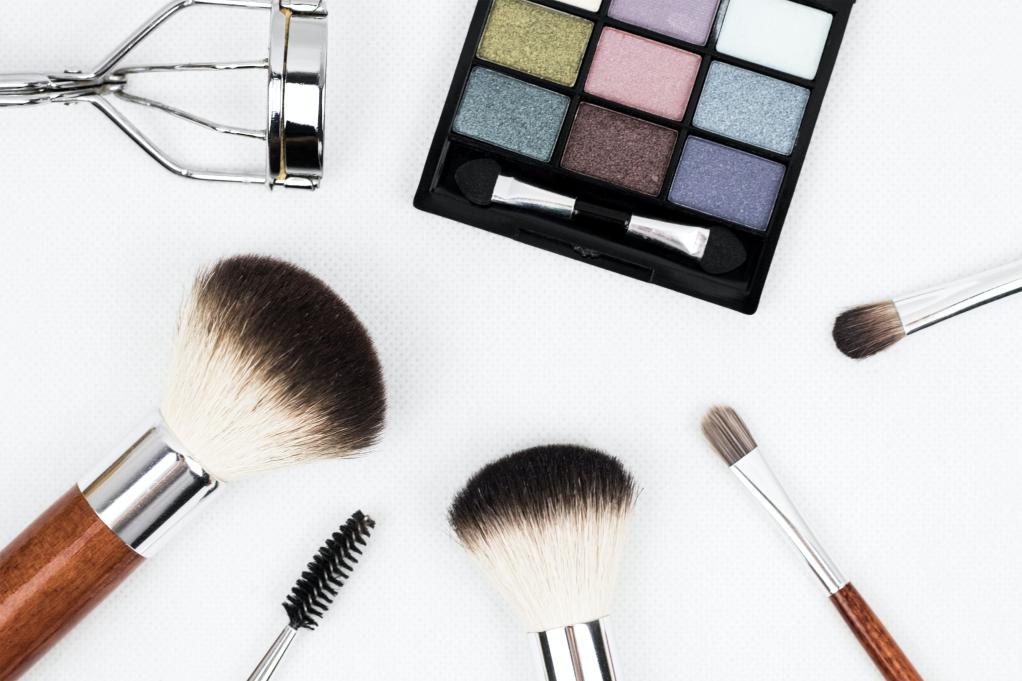
Wear a lot of makeup and it’s considered excessive, wear none and you’re not making enough of an effort.
The debate around makeup isn’t a new one and stigmas are still in place. Lockdown has reopened my thoughts around my priorities and self-image, and makeup is a part of that.
I started wearing makeup midway through secondary school. I’d held off for a while because I didn’t feel it was necessary.
Realistically, part of the reason I started wearing it was due to the influence of those around me. They appeared more grown up than I did and I’ve never liked the fact I look younger than my age.
Influence is the key here; girls are pressured into applying makeup from a young age because of those around them, idolising celebrities who are often seen as having perfect skin. More celebrities are now embracing their ‘natural beauty’, such as Alicia Keys – who was inspired to go makeup free after a natural photoshoot in 2016.
I still don’t wear very much makeup. Since going to university, I haven’t cared as much about whether or not I’m wearing it in the day, although I always wear it on a night out. There is definitely an expectation that girls wear makeup when going out.
I enjoy being experimental with makeup for an event, using it as an opportunity to apply more and work with different colours. I think there’s an assumption that if you don’t wear any when going out then you haven’t made much effort.
It is, at times, pressurising and helps create the stereotype that women take a long time to get ready, due to the time it takes to ‘put a face on’.
Makeup is often thought of as something women use as a mask to cover what they really look like, due to insecurities that they have about themselves. The reality is that makeup can be empowering. Makeup makes me feel bolder and generally more prepared for the day ahead. This is because I have spent a bit more time paying attention to myself and freshening myself up.
There is an unstated expectation that women should wear makeup when working to make themselves more professional. This is a double standard, as the same expectation is not applied to men. It is true that makeup can make a person look smart, yet the inequality is unfair.
There is also the social stigma for boys wearing makeup. If a boy applies makeup then it is often assumed that he is an effeminate male or a performer – for example, David Bowie used makeup to transform into the persona of Ziggy Stardust. At the start of 2020, John Lewis introduced a male makeup counter, suggesting that there is an effort to remove the taboo of men wearing it. Men, too, suffer from many insecurities and makeup could help increase their confidence, the same way as for many women.
During lockdown I have gone most days without wearing makeup; I am not going out as much and when I do, it is mostly for exercise. I have found, however, that I will still wear some if, for instance, I have a Zoom call, because it is the lockdown equivalent of going out. If I put makeup on in the morning, I feel a bit more prepared for the day and it helps to get me out of the lockdown slump.
When I choose to wear makeup now, I embrace it. I enjoy the process of putting it on and experimenting; its application and style can be seen as an art form.
While stigmas around makeup may still prevail, the important thing to remember is that they shouldn’t determine what you choose to do. Do what makes you feel confident and good about yourself, whether that includes wearing makeup or not.
More for you
Support Young Creators Like This One!
VoiceBox is a platform built to help young creators thrive. We believe that sharing thoughtful, high-quality content deserves pay even if your audience isn’t 100,000 strong.
But here's the thing: while you enjoy free content, our young contributors from all over the world are fairly compensated for their work. To keep this up, we need your help.
Will you join our community of supporters?
Your donation, no matter the size, makes a real difference. It allows us to:
- Compensate young creators for their work
- Maintain a safe, ad-free environment
- Continue providing high-quality, free content, including research reports and insights into youth issues
- Highlight youth voices and unique perspectives from cultures around the world
Your generosity fuels our mission! By supporting VoiceBox, you are directly supporting young people and showing that you value what they have to say.





